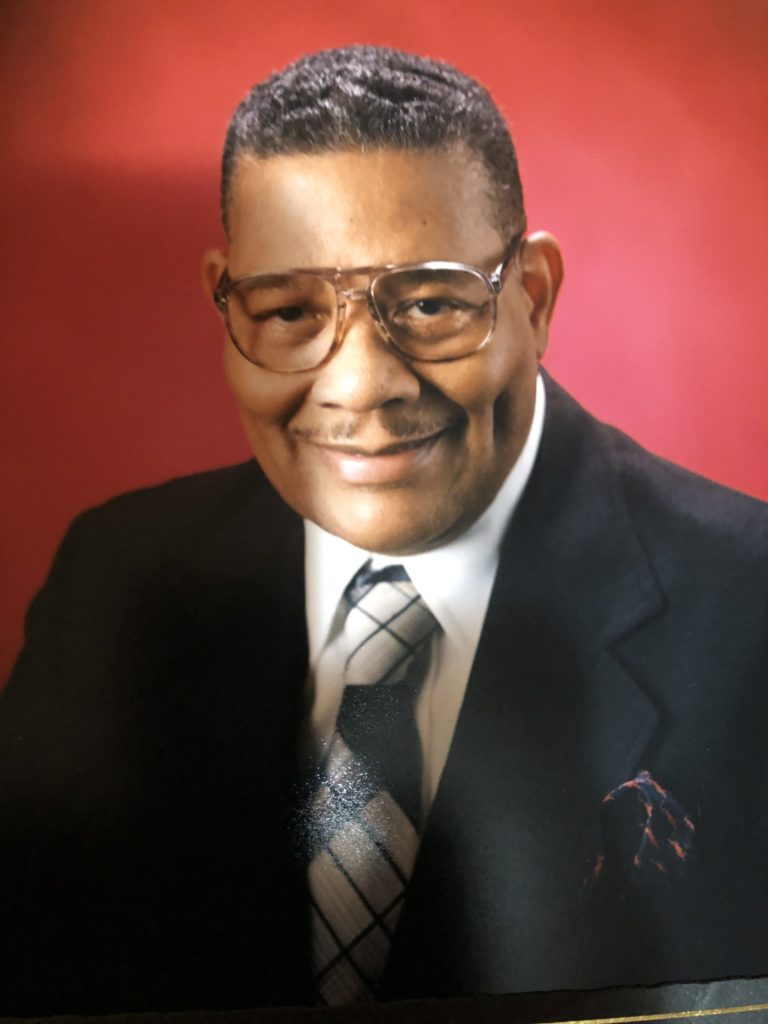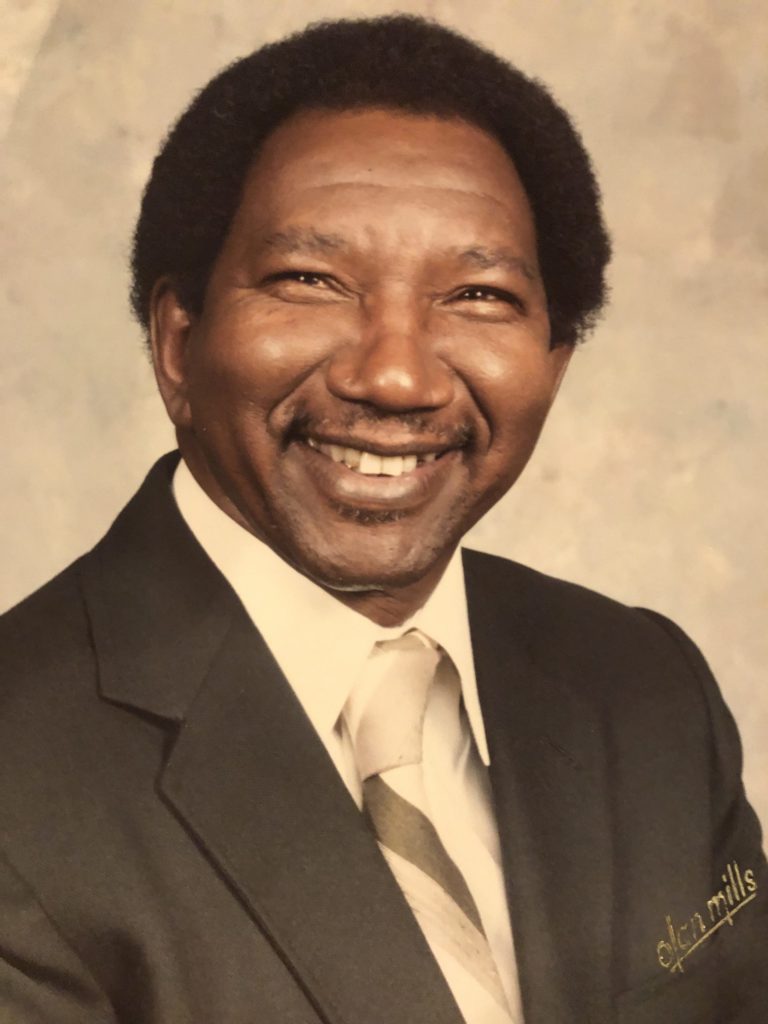
Why the McNeils give: Family legacy and a shared commitment to diversity
A Q&A with longtime U-M and Michigan Engineering donors on what motivates them.

A Q&A with longtime U-M and Michigan Engineering donors on what motivates them.
The first endowed scholarship that Ron and Regina McNeil ever created was for Michigan Engineering students—despite the fact that neither of them is an engineer.
In the nearly 20 years since, they have gone on to create multiple scholarships at the University of Michigan through the The Ronald D. & Regina C. McNeil Foundation, Inc., and continue to find new ways to support Michigan Engineering. They funded the Ronald D. and Regina C. McNeil Walking Robotics Laboratory, a cutting-edge space to develop and test legged robots. And this spring they have supported the new Department of Robotics by endowing its department chair position—a first for the College in more ways than one.
We asked Ron and Regina about why they give. As they describe below, their fathers were a major influence. And in Regina’s case, the fact that her father was trained as an engineer—but was never afforded the opportunity to practice as one—inspires the McNeils to put that dream in reach for students of color today.
In addition, they say that U-M’s track record with diversity, equity and inclusion has earned their support.
Question: Just because people have the means does not mean that they are motivated to get involved with philanthropy, and yet you are involved in many ways and places. Why is that?
Ron: As you get to know us, you will probably sense that our fathers are very important in our lives. My cell screenshot is my dad. Regina’s laptop screenshot is her dad. We have six endowed scholarships at U-M. Our seventh will be endowed in my father’s name. Most of the lessons I learned came from a father who never finished grade school. He used to preach about learning, leading, contributing and sharing choices that probably were rooted in his religious background. As a Black man from the south, you shared with other people to get things done. The lessons my father imparted on me around sharing were at a very early age. He talked about, and I learned about, sharing well before I had the financial resources to do so. You do not have to have money to share; you share what you have.
Regina: As you grow older, you look back and you reflect and I often reflect on how many acts of kindness, support, and encouragement I have received from other people, often unsolicited. They either saw something in me or just volunteered to help. I hope that I was mindful enough to acknowledge their support and thank them for it. So, to give back, to pay it forward, to lend a hand is important to me. If you see a need, address it.
Caption: Regina and her father, Sanders M. Clark (first photo). Ronald McNeil and his father, Elijah L. McNeil, Jr. (second photo). Photos courtesy of McNeil family
Question: A lot of your philanthropy has supported higher education. Why have you chosen that?

Ron: It goes back to my father. He worked in an automotive parts fabrication factory, and he always said, “You’re going to be better than I am.” He had an exemplary standard of excellence. He’d say, “If you’re a janitor, you need to make sure you get in the corners.” He believed that you should do things very well. And to do things very well, you had to learn about them. My father could do everything. I watched him put a motor in a car, install a hot water heater and put a roof on our house. He always said, “If you give me time to sit with somebody and learn what they do, I can do it myself.” One, because we didn’t have any money, but most importantly, he was a learner. I am a lifelong student because of my father.
Regina: In our household, it was an unspoken expectation that you were not going to go through life ignorant and uneducated. Every Christmas, we always got a family game to play that required some strategy or thought. I mean, it was just an unwritten expectation. And if you didn’t meet that expectation, you got the side eye, particularly from your siblings. (Laughs). It’s like, “You need to keep up here.” It was about learning and being informed critical thinkers.
Question: Regina, I know you earned one of your degrees here, but Ron, you attended college elsewhere. Why have the two of you chosen to give to the University of Michigan?
Regina: One of the reasons why we are so tied to the University of Michigan is because of the commitment to diversity, equity and inclusion. We’ve had the opportunity to peek behind the curtain and see how the university supports our Foundation scholars. We have witnessed evidence of the DEI commitment.
Ron: I would be remiss if I didn’t say that there’s a guy here who inspires me every day and that is Alec Gallimore.
Regina: Absolutely.
Ron: The dean’s vision is phenomenal. It’s a vision that develops premier engineers who are global leaders committed to serving the common good. And Dean Gallimore wants to make this journey accessible to those who have been excluded in the past. Alec is inspiring.
Regina: Speaking of deans, Elizabeth Birr Moje, Dean of the U-M School of Education, is like that as well. Her Teacher Training Model is unique and innovative. I mean, you know, she just doesn’t talk about it. I don’t want to sound as if the university has no work to do. But we have witnessed—and it has not just been anecdotal—we have witnessed the commitment, and comparatively speaking, I think it’s impressive. I’m proud of my institution.
Ron: When the Dean calls, we’ll say, “Is that my dean or your dean?” But I claim them both.
Regina: Well, I do, too.
Ron: Yeah, you do, too. That’s true.
Question: Neither of you is an engineer. So why have you done so much to support the College of Engineering?
Regina: Well, my father passed away in 2004, and prior to his death we established our first endowment in his name. He earned an engineering degree. He spent two years at MIT, the war interrupted, and he finished up in a school in Michigan. I didn’t know that until, oh, late in my life. I just asked him one day, “Daddy, why didn’t you finish your degree?” And he looked at me like, “I finished my degree!” Well, the question was asked because he never worked as an engineer.

He said, “Well, yeah, you know, Black engineers weren’t really what everybody was looking for at that time.”
I’m sure he would have loved to have an engineer in the family. I share a passion for mathematics with the engineers but that’s as far as it goes. (Laughs).
Before my father’s passing, we told him, “You may not have been able to practice as an engineer, but there will be thousands of Sanders M. Clark Scholars who will be engineers.” Establishing the Sanders M. Clark Endowed Scholarship was one way we could celebrate and honor his life and legacy. My father loved Ron like a son and the fact that he knew that his endowment was a gift from us both made it all the more special.
Ron: We gave him a surprise birthday party and he was surrounded by family and friends when he learned of the scholarship bearing his name. He passed away knowing that there would be engineers named Sanders M. Clark Scholars. It was one of the best things we could have done.
Regina: It really, really was.
You know, I have four brothers and sisters and three of them also matriculated to Michigan and my father is responsible for that. He instilled the love of education in us, and, to his credit, he really understood the value and prestige of a Michigan degree. That’s how we ended up here.
Question: You have funded a lot of students in the last couple of decades, and have a tradition of meeting with them face-to-face, building relationships with them and helping them succeed as individuals. But now you fund more than that, including the Walking Robotics Lab named in your honor, as well as endowing the Ronald D. and Regina C. McNeil Department Chair of Robotics, the first chair of its kind funded by Black donors. Considering the impact you’ve had helping students, why change the formula?
Ron: It’s not really a change. It’s more like an extension. The College of Engineering has several initiatives aimed at getting Detroit Public Schools Community District students involved in STEM-related curricula at an early age. The College has developed a Robotics curriculum at The School at Marygrove, where Dean Moje’s Teacher Training Model is practiced. So, when we had the opportunity to fund and endow the department chair, it was kind of a no-brainer. It really fits.
Regina: When we attended the ceremony for U-M’s Ford Motor Company Robotics Building, we had the opportunity to tour the Walking Robotics Laboratory and speak with the students. Seeing the smiles on their faces and the way they took pride of ownership in the laboratory; to have an impact on that level—it was priceless.
Ron: Michigan is a global powerhouse already steeped in robotics at the graduate level. The new Robotics Department brings this to the undergraduate level and does it in a way that continues to promote access and inclusion
Regina: And I see that as a continuation for me as well. I look back at the obstacles my father faced. Then I look at my own career, particularly when I was at the University of Michigan. I wanted to be a math major, and I wasn’t getting very much support, in particular for being a woman. But I always wanted to teach math. And every time I was discouraged from majoring in math, I would think, “But if I don’t major in math, then I can’t be a math teacher!” So, I guess for lack of a backup plan, I persevered.
So, you go from me to now Professor Dawn Tilbury: A woman as the inaugural department chair of the new Robotics Department. It’s witnessing continuous progress. And then for Ronald and me to have the opportunity to leave a legacy by naming the chair? That’s really special.
Ronald: I think Dr. Tilbury’s going to be a force multiplier and accelerate the Robotics momentum at Michigan—an institution that is already a top-ranked global and economic powerhouse. Engineering has robotics going through all its disciplines in some form or fashion. And when Dr. Tilbury brings those together at a facility like the Ford Robotics Building, I think she will accelerate Michigan’s leadership.
Question: Before we end, is there anything else you would like to add?
Ron: We did not talk about our mothers, who clearly were present and extremely important in our lives.
Regina: Yes! The importance and significance of Black women and mothers is the typical or dominant narrative when discussing the Black family. It is important to recognize and celebrate Black men and Black fathers as well. Our experience is not anecdotal. Our story is the same for children all across this country and this narrative should be documented as well.
For more information about Michigan Robotics, visit robotics.umich.edu. For more information about giving to Michigan Engineering, visit engin.umich.edu/giving.